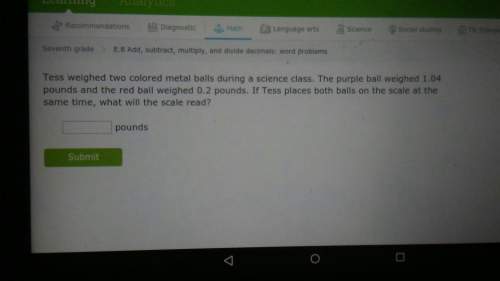
Mathematics, 29.08.2020 21:01 JaleahOwens13
On a coordinate system, a square which lies entirely in
quadrant I has a vertex at the origin. Another square, which
lies entirely in quadrant III, also has a vertex at the origin.
If the squares are congruent, this could be shown with all of
the following transformations except-
O translation
O rotation
O reflection
dilation

Answers: 2


Another question on Mathematics

Mathematics, 21.06.2019 16:30
One of the same side angles of two parallel lines is 20° smaller than the other one. find the measures of these two angles.
Answers: 3

Mathematics, 21.06.2019 18:00
What can you determine about the solutions of this system
Answers: 1

Mathematics, 21.06.2019 18:30
Find the constant of variation for the relation and use it to write an equation for the statement. then solve the equation.
Answers: 1

Mathematics, 21.06.2019 22:00
Rewrite 9 log, x2 in a form that does not use exponents. 9log, x = log, x
Answers: 3
You know the right answer?
On a coordinate system, a square which lies entirely in
quadrant I has a vertex at the origin. Anot...
Questions

History, 05.10.2019 09:01









Mathematics, 05.10.2019 09:01

Business, 05.10.2019 09:01




History, 05.10.2019 09:01

Mathematics, 05.10.2019 09:01



Mathematics, 05.10.2019 09:01




